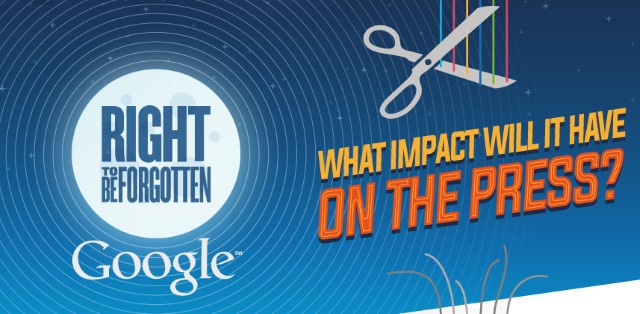Right to Be Forgotten hits social networks hardest [Infographic]

The "right to be forgotten" is something that was expected to take Europe by storm. A court ruling gave people the right to get in touch with search engines like Google and Bing to ask that results relating to them be removed -- assuming they are "inadequate, irrelevant or no longer relevant". One of the services that popped up after the ruling was Forget.me, making it simple to submit removal requests.
Three months down the line, we have access to the first set of figures relating to requests, and they show that social networks are the most affected type of website.
Looking at more than 10,000 removal requests, more than a fifth of the URLs that people have complained about have been on social networks. 21.3 percent of complaints relate to Facebook, Google, YouTube, Twitter, and LinkedIn, but just 8.4 percent of these complaints resulted in a URL being delisted. There were a very small number of complaints about Wikipedia -- just 20 in fact -- and none of them were upheld.
The infographic from Reputation VIP below also shows how press websites and blogs got off very lightly.

